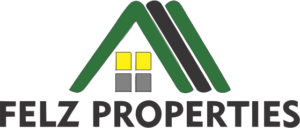 Real Estate
Real Estate
Mortgage loan requirements are often confusing for consumers in Nigeria; this is usually due to the technical nature of the real estate market. This article breaks down the requirements, documentation, and everything else a customer may need to obtain a mortgage loan in Nigeria.
You will find:
- The mortgage loan eligibility requirements
- Documents needed to get a mortgage loan
- Other important information for qualifying for a mortgage loan
What is a mortgage loan?
A mortgage loan is a type of long-term loan used to purchase or improve real estate. This comprises a home, land, estate, office buildings, shopping malls, and hotels, among other things.
Mortgage loans are often secured by the property of the financed real estate. This means that if a borrower fails to repay the loan, the lender will confiscate the property that is being financed.
Eligibility criteria for a mortgage loan in Nigeria
As a result of the variety of things that can be financed in real estate varies greatly, different lenders in Nigeria may have varied qualifying conditions for mortgage loans in Nigeria for different types of borrowers. For example, the eligibility standards for a single-family house mortgage loan differ from those for a large retail centre mortgage loan.
Housing programmes such as the National Housing Fund (NHF) and the Federal Mortgage Bank of Nigeria (FMBN) can potentially alter mortgage loan qualifying conditions for Nigerians.
There are, however, general conditions that must be completed regardless of the loan size. These are some examples:
- Age requirement
- Income requirement
- Credit history
- Down payment
- Insurance
- Legal documents
Age requirement
To be eligible for loans in Nigeria, borrowers must be above the minimum age of 18 years. Mortgage loan lenders, however, often increase this minimum age to 21.
This is because mortgage loans sometimes entail large sums of money, and lenders in Nigeria always favour borrowers over the minimum age since it implies financial experience.
To that end, borrowers in Nigeria must be between the ages of 21 and 60 to be eligible for a mortgage loan. Age criteria may be adjusted based on the borrower’s financial situation.
Income requirement
One of the most important and least flexible qualifying conditions for mortgage loans is the income criterion.
No lender will make a mortgage loan to a borrower who does not have a stable source of income. This is due to the fact that mortgage loans frequently demand large sums of money, and a consistent source of income is a significant indicator that a borrower will be able to repay the loan, thus showing eligibility.
A borrower’s salary must be able to comfortably handle the monthly repayments of the required mortgage loan. Otherwise, they will not be qualified for the mortgage loan. To that purpose, they must be able to provide appropriate evidence, such as bank account statements or pay slips.
It is vital to know that mortgage loan lenders in Nigeria may demand applicants to have a regular income for at least two years before they are eligible for a mortgage loan.
Credit history
A borrower must have a credit history that clearly demonstrates that they will be able to repay the mortgage loan that they require from the lender, or they will be denied the loan.
Lenders utilise credit histories, and especially credit scores, to decide whether a potential borrower is creditworthy enough to secure a mortgage loan. To be eligible for a mortgage loan in Nigeria, you must have a credit score of at least 650 (out of a potential 850).
Some lenders may be ready to work with consumers with lower credit scores, but at the expense of higher interest rates and larger down payments.
Down payment
Real estate development necessitates a substantial financial investment. Lenders must demonstrate to lenders that they are capable of making this financial commitment, and the only impediment is the time required to amass the necessary funds.
This is why lenders in Nigeria want a down payment for the purchase or upgrading of a property. This payment is often between 10% and 30% of the entire amount requested, with most lenders in Nigeria requiring at least 20%.
Borrowers who cannot afford this down payment are judged ineligible, however borrowers who can make higher down payments can obtain larger mortgage loans with cheaper monthly payments.
Borrowers may be able to negotiate a lower down payment % with some lenders. However, these lenders will compel the borrowers to pay private mortgage insurance.
Insurance
The property to be financed must be covered by insurance. This protects the property, the borrower, and the lender from losses caused by damage, theft, natural catastrophes, and other unanticipated occurrences that the insurance company permits.
Without this insurance, a borrower may be unable to obtain a mortgage loan from most lenders.
Property valuation
Lenders must obtain an accurate property appraisal of the real estate that will be funded with a mortgage loan. A borrower who cannot produce this is ineligible for a mortgage loan.
This appraisal, which is normally performed by a professional appraiser, will be used to establish the loan amount that the lender is willing to offer.
Legal documents
To qualify for a mortgage loan in Nigeria, the borrower must provide legals documents proving ownership of the property in question. The survey plan, title deed or certificate of occupancy or deed of assignment, building plan and so on are examples of these papers.
The legal documents ensure that there are no legal disputes on the property and that the lenders are providing funds to the appropriate owner of the estate.
Documents required for a mortgage loan in Nigeria
Apart from meeting the eligibility criteria for mortgage loans, borrowers also have to gather important documents to boost their chances of approval.
Lenders will utilise these documents to confirm that borrowers fit the qualifying conditions. Among them are:
- Personal identification documentation
- Income-Proof Documents
- Job verification
- Credit history
- Documents pertaining to property
- Insurance policy documentation
Documents for personal identification
This includes: Valid government-issued identification card (driver’s license, national ID card, voters card, or international passport)
Documents for proof of income
These include:
- Recent pay stubs
- Tax returns
- Bank statements
Employment verification
Employer employment letter indicating the borrower’s work title, length of employment, and pay. Lenders will call your company to verify this information, so be as truthful as possible.
Credit report
This report includes a borrower’s credit history, payment history, outstanding obligations, and credit utilisation. Lenders can check to acquire a borrower’s credit report directly from a credit bureau in Nigeria, but in some situations, borrowers may be required to generate it themselves. Borrowers can obtain credit reports from one of Nigeria’s credit bureaus.
Property documents
These are some examples:
- A copy of the purchase agreement for the property in question.
- A copy of the property deed (the document transferring ownership from the seller to the buyer).
- Property appraisal report (this document that reveals the market worth of the property)
- A property land survey which displays the property’s borders, and any encroachments that may influence the property’s use or value.
- Title search report which details the property’s ownership history, and any legal difficulties or conflicts that may compromise the property’s title.
Document for insurance
These are some examples:
- Homeowners insurance (this is the policy that protects the borrower’s property from harm caused by incidents such as fire, theft, or natural disasters).
- Mortgage insurance (this is the insurance paperwork that will be necessary if a borrower is unable to afford the 20% downpayment commonly requested by lenders; it protects the lender in the event that the borrower fails on a loan).
Other common requirements to obtain a Mortgage Loan in Nigeria
It is important to note that depending on the lender’s needs and the borrower’s financial status, additional documentation might be requested.
Among these requirements may be:
- Insurance for life
- Building plans and permits for newly constructed or modified properties.
- Statements of profit and loss (for self-employed borrowers)
Conclusion
The requirements to obtain a mortgage loan in Nigeria are only confusing when borrowers lack sufficient understanding. Read and understand articles like these to ensure that all documents are acquired and requirement are met.
Frequently Asked Questions
Do I need income to qualify for a mortgage loan in Nigeria?
Yes. An income stream is one of the essential requirements to obtain a mortgage loan in Nigeria. A consistent revenue stream provides a strong signal to lenders that you would repay your loan quickly.
It is not advisable to apply for a mortgage loan without a steady income, regardless of the lender’s requirements.
Can I apply for a mortgage loan as a self-employed individual?
Yes, you can qualify for a mortgage loan. As long as you can demonstrate a consistent stream of income from a job or business.
Are there penalties for defaulting on mortgage loan payments?
It is quite rare to receive a federal mortgage loan in Nigeria without collateral, as lenders frequently utilise demand collateral to secure the loan.
This collateral might range from the home being purchased to anything of equal value as decided by the lender’s risk with the loan.
What is the range for interest rates on mortgage loans in Nigeria?
Mortgage loan interest rates range from 15% to 20% each year. It could be smaller or higher depending on the type of lender and the borrower’s financial status.
